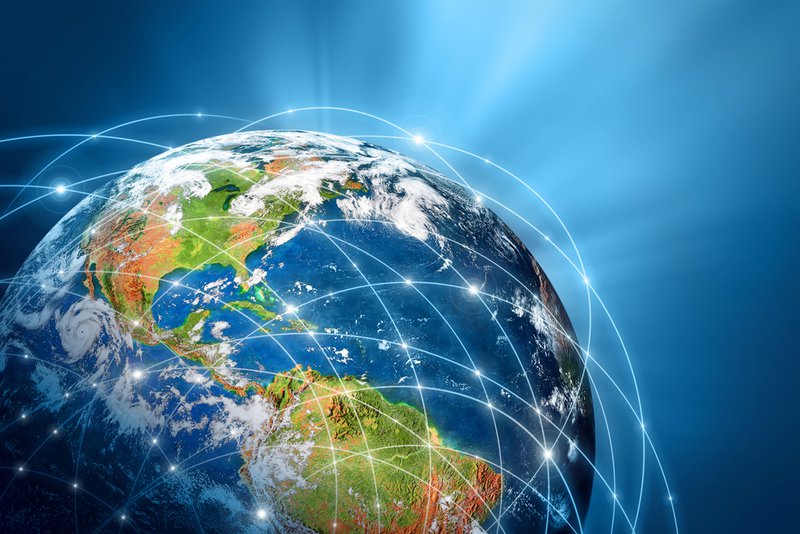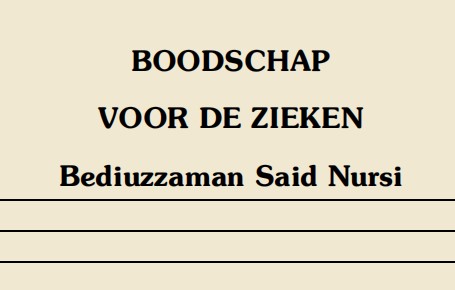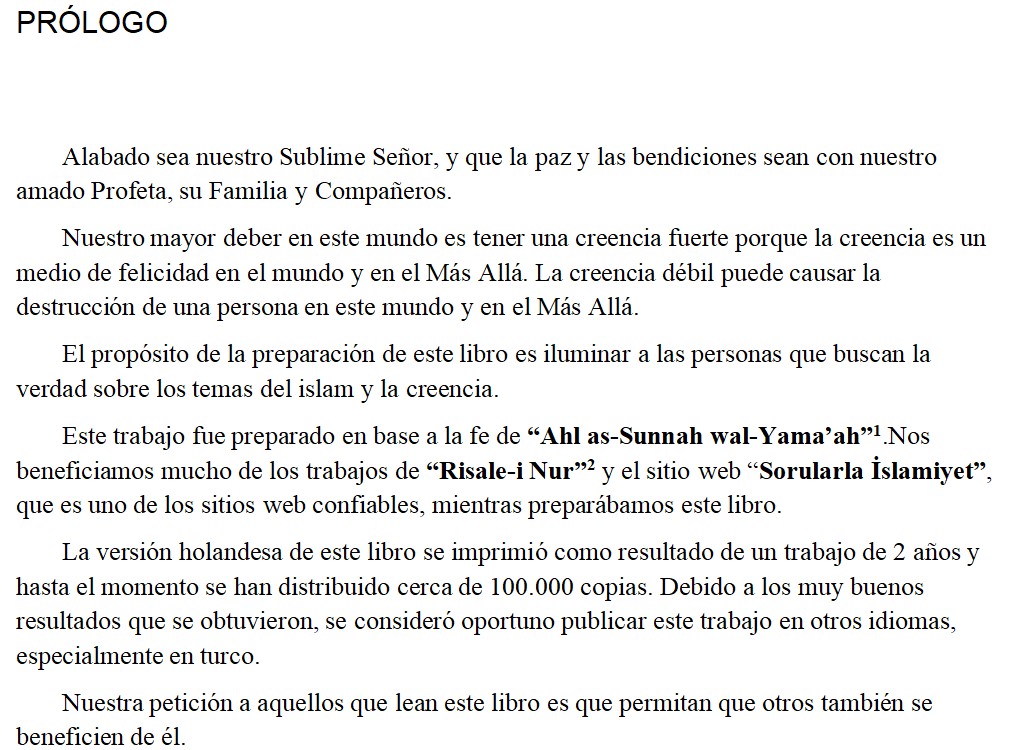
Bediuzzaman and Globalization
The limits of early people's interests were the places they could go on foot or with animals, and their main preoccupation was meeting their daily basic needs. Living in tribes was therefore perfectly suited to the simple living conditions of that time. Each tribe was like a sphere by itself. But the widespread use of the internet has accelerated the flow of information and accelerated the process of globalization. Now everyone is truly globalized and being from a country in the world means no more than being from a certain city in a country. People's value is measured not by their nationality but by their knowledge and skills.
Bediuzzaman expresses this process and the world becoming like a village as follows: “Before the Era of Bliss all the nations of the world of humanity were extremely distant from one another and hostile to each other, both physically and emotionally, and by talent and upbringing. A single sort of education was insufficient for them and all could not be drawn to a single cause. Then, when humanity was awakened in the Era of Bliss and subsequently, people felt a desire to come together due to the exchange of ideas and swapping of characters, and the intermingling of peoples, and some of them investigating the conditions of others, and time was churned up by the many means of communication and transportation; -then the globe of the earth became like a single country, or a province, or a town and the people of the world came together; and then a single mission, a single prophethood was sufficient for all of them." (Signs of Miraculousness, 59)
Much has been written and said about globalization, both positive and negative. Some see globalization as a natural consequence of evolution and a new stage of civilization, while others present it as a modern machine of oppression in the hands of the strong to oppress the weak. It should be noted that "the difference between a drug and a poison is the dosage." In other words, a substance that is a cure for many problems and people acts as a poison in the wrong amounts and situations. What is appropriate here is to examine this substance in the light of science with a good-faith approach and to investigate how to make the best use of it by avoiding its harms. As Bediuzzaman said: “The remedy for one ill person may be poison for another. If a remedy exceeds its limit, it’s the cause of ills." (Letters, 549) and “Definite benefits should not be sacrificed for imaginary harms." (Letters, 549)
Unity is in everyone's interest. The greatest common interests arise from the greatest unity. Globalization can lead to great things and benefits. In the words of Bediuzzaman: “There is in the whole what is not present in the parts, like a rope being strong though its strands are weak." (Signs of Miraculousness, 183) “It is evident that if two champions are wrestling with each other, even a child can beat them. If two mountains are balanced in the scales, even a small stone can disturb their equilibrium and cause one to rise and the other to fall. So o people of belief! Your strength is reduced to nothing as a result of you passions and biased partisanships, and you can be defeated by the slightest forces." (Letters, 319)
The source of the uneasiness about globalization is the Western philosophical view of human beings based on materialism. Here, man is characterized as a "talking animal", an "economic animal" or a "thinking animal". Man's goal is expressed as satisfying his desires and living comfortably like an animal; right is seen in power, and life is presented as a conflict of interests. This has undermined trust between people and societies, and emphasized feelings of competition and enmity. This approach has paid a heavy price with two world wars.
Bediuzzaman analyzed the human being together with its matter and meaning, and pointed out that the true bliss of humanity is not in matter, but in a virtue worthy of human greatness. “Together with being physically small, weak and powerless, and being one of the animals, man bears within him an exalted spirit, and has vast potentiality, unrestricted desires, infinite hopes, uncountable ideas, and unlimited powers, and he has a nature so strange he is as though an index of all the species and all the worlds." (Signs of Miraculousness, 162)
Although the earth is one, there are as many special spheres intertwined with each other as there are human beings. One could even say that positive globalization is the achievement of harmony, solidarity and unity between these special spheres. In Bediuzzaman's words "Everyone has his own vast world in this world. Simply, there are worlds one within the other to the number of human beings. But the pillar of everyone’s private world is his own life. Whenever his body gives way, his world collapses on his head, it is doomsday for him." (Flashes, 299)
Bediuzzaman sees the condition for peace and tranquility among people and human strata as cooperation. A healthy globalization depends on wide open channels of cooperation. “The order of society is dependent on there being no vacuum between the classes of people. The upper classes should not grow distant from the lower classes, nor the rich from the poor, the extent that the lines of communication are broken between them. But because the obligatory payment of zakat and the prohibition of usury and interest have been neglected, a yawning gap has opened up between the classes, and the upper classes have grown so distant from the lower classes that no links between them remain. It is because of this that instead of respect, obedience, and love ascending from the lower classes to the upper classes, shouts of revolution arise, and shrieks of envy and cries of hatred and revenge. Similarly, instead of kindness, generosity, and favours descending from the upper to the lower classes, the fires of tyranny and oppression, and volleys of insult rain down on them." (Signs of Miraculousness, 53)
Since people's desires and needs are unlimited and their time, means and capabilities are limited, they are obliged to live in communities and cooperate. Otherwise, they will remain at the level of a weak animal that can barely manage to feed itself. Living with the dignity worthy of the greatness of humanity, advancing in civilization and becoming the sultan of the earth and all other living creatures is only possible by living in community and cooperating. In Bediuzzaman's words “Man has been created with a strange, subtle nature distinguishing him from all other living beings and making him an exception to them. By virtue of this there have arisen in him the desire to have a livelihood and position befitting humanity. For his food, dress, and accommodation – the need for which arises due to the above-mentioned desires- to be prepared proficiently man has need of multiple arts and crafts, but he is incapable of practising all these needs on his own. He needs therefore to mix with his fellow-men and to co-operate with them, and for all of them to assist each other and exchange the fruits of their labour." (Signs of Miraculousness, 161)
Achieving and maintaining social peace and tranquillity depends on the principle of justice and fairness in human relations. According to Bedıuzzaman, a healthy globalization depends on establishing a constructive understanding such as the following: “A satanic wile corrupting the life of society is this: It is not to see all the virtues of a believer on account of a single bad point. Those unjust people who heed this wile of Satan’s are inimical to believers in that way. However, when Almighty Allah weighs up deeds with absolute justice on the supreme scales at the Last Judgement, He will judge in accordance with the predominance of good deeds over evils and vice versa. And since the causes of evil deeds are numerous and their existence is easy, sometimes He veils many bad deeds with a single good deed. That is to say, dealings in this world should be in accordance with that Divine Justice. If a person’s good points are greater in regard to quality or quantity than his bad points, the man is deserving of love and respect. Indeed, one should forgive numerous bad points on account of a single valuable virtue. However, due to the vein of tyranny in his nature and through the promptings of Satan, man forgets the hundred virtues of a person because of a single bad point, is hostile towards his believing brother, and commits sins. Like a fly’s wing covering the eye conceals virtues as great as a mountain due to one evil like a fly’s wing; he forgets them, is hostile towards his brother believer, and becomes a tool of corruption in the life of society. (Flashes, 124)
Bediuzzaman sees “shura” (consultation) as the engine of the progress of humanity and civilization and strongly recommends that consultation should be widespread at all levels: “The key to Muslims’ happiness in the life of Islamic society is the mutual consultation enjoined by the Shari‘a. The verse,
.png)
Whose rule is consultation among themselves (Qur’an, 42:38) orders consultation as a fundamental principle. Just as the consultation of the ages and centuries that mankind has practiced by means of history, a conjunction of ideas, formed the basis of man’s progress and sciences, so too one reason for the backwardness of Asia, the largest continent, was the failure to practice that true consultation." (The Damascus Sermon, 23)
Bediuzzaman makes a comparison by stating that Western civilization in its current form cannot be the basis for globalization:
"The Qur’an, which is a mercy for mankind, only accepts a civilization that allows for the happiness of all, or at least of the majority. Modern civilization has been founded on five negative principles:
Its point of support is force, the mark of which is aggression.
Its aim and goal is benefit, the mark of which is jostling and tussling.
Its principle in life is conflict, the mark of which is strife.
The bond between the masses is racialism and negative nationalism, which are nourished through devouring others; their mark is collision.
Its enticing service is inciting lust and passion and gratifying the desires. But lust transforms man into a beast.
As for the civilization the Shari‘a of Muhammad (UWBP) comprises and commands, it is as follows:
Its point of support is truth instead of force, the mark of which is justice and harmony.
Its goal is virtue in place of benefit, the mark of which is love and attraction.
Its means of unity are the ties of religion, country, and class, in place of racialism and nationalism, and the mark of these is sincere brotherhood, peace, and only defence against external aggression.
In life its principle is mutual assistance instead of conflict, the mark of which is accord and solidarity.
And it offers guidance instead of lust, the mark of which is human progress and spiritual advancement." (Letters, 548)
Consequently, True globalization, which will bring benefits and happiness to all humanity and elevate the globe, is only possible through the Islamic upbringing of today's civilization based on justice, love and virtue. Bediuzzaman heralds such a civilization for humanity.
“Just as every winter is followed by spring and every night by morning, mankind also shall have a morning and a spring, inshaAllah. You may expect from Divine Mercy to see true civilization within universal peace brought about through the sun of the truth of Islam." (The Damascus Sermon, 14)
Nur Way





